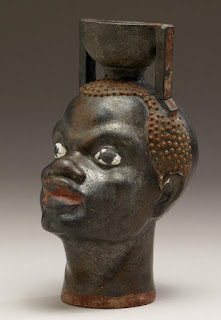Chicago NATO summit an opportunity for correcting injustice done to Macedonia in Bucharest, says Serwer
The upcoming NATO summit in Chicago is an opportunity for correcting the injustice done to Macedonia at the Alliance's summit in Bucharest, says Daniel Serwer - university professor and senior fellow at the Center for Transatlantic Relations - in a post on his blog peacefare.net.
According to him, the Greek-Macedonian name dispute is one of the least interesting problems resulting from the breakup of former Yugoslavia. In his post, he describes has the issue has arisen since Macedonia declared independence in 1991.
The Republic of Macedonia, one of six republics that constituted Socialist Yugoslavia, became independent in 1991. But Greece, its neighbor to the south, objected to the use of "Macedonia," claiming that appellation belongs exclusively to Greece and its use by the northern neighbor implied territorial claims to Greek territory. The newly independent country entered the United Nations as The Former Yugoslav Republic of Macedonia (last time I was there it was alphabetized under "T"on the voting board at the UN General Assembly), says Serwer.
"Athens and Skopje signed an interim accord in 1995 supposedly regulating the issue, but Greece claims Macedonia has violated it while the International Court of Justice (ICJ) decided last December that Greece had definitely violated it by blocking the FYROM’s entry into NATO at the Bucharest Summit in 2008. There is an opportunity to correct this injustice at the NATO Summit in Chicago in May," the American scholar states.
He says that efforts to resolve the issue have been ongoing since the early 1990s in UN-sponsored talks, mediated since 1994 by New York lawyer Matt Nimetz. According to Serwer, Macedonia already has a pretty good deal on the name issue, but the name row remains unresolved thus hindering country's Euro-Atlantic integration.
"Just about everyone calls the country by the name Skopje prefers, and many countries, including the U.S. have formally recognized it as the "Republic of Macedonia." Greece does not, but why should anyone care about that? The unfortunate answer is that Athens can veto Skopje’s membership in NATO as well as any further progress towards membership in the EU. Macedonia is already a candidate for EU membership but hasn't got a date for the start of negotiations, which is an important milestone that Athens is holding hostage. NATO membership is also important to Macedonia, which counts itself as part of the West and has deployed troops to Afghanistan under NATO command, says Serwer.
He adds that the problem for Macedonia is the veto, not the name. While there is virtue in continuing the effort to resolve the name issue, it might be wise for Skopje to stop pounding on Matt Nimetz’s door this spring for a solution to a problem Athens has but Skopje does not. Skopje needs to go directly to Athens and mount a serious effort to convince Greece to allow it into NATO under the interim accord as the FYROM. The ICJ decision requires nothing less.
Serwer suggests that Skopje needs to find out what Athens needs that Macedonia can provide.
"If the government won’t discuss the issue of NATO membership, then Macedonia should find think tanks and academics in Greece who will," the university professor says urging Skopje to work with the Macedonian and Albanian American communities.
Greece is vulnerable at the moment because of its parlous financial situation, but no one in Brussels or Washington wants to kick Athens while it is down. Greek Americans are well-organized and an important voting constituency. Macedonia has a “stick” it can’t really use. It needs to find some other way to put the squeeze on, or “carrots” that are attractive enough in Athens to open the NATO door. Then they can go back to not resolving the name issue at the UN for another 15 years or so, by which time everyone will have forgotten why it once seemed important, Serwer says in his blog peacefare.net, focused on analyses, policies, institutions and experiences that can be helpful in sustaining global peace i.e. prevention and resolution of violent international conflicts.




